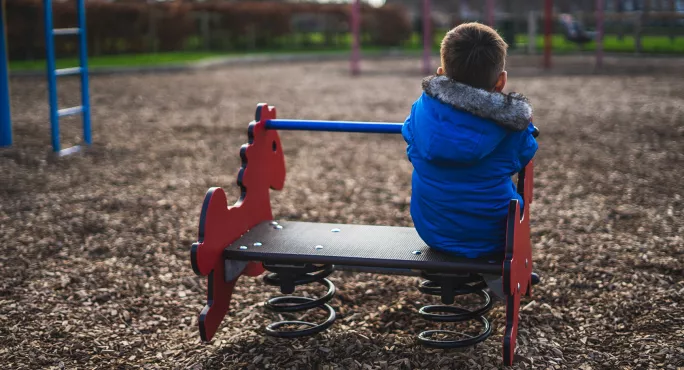Primary pupils with long Covid more likely to have poor mental health

Primary school-aged children with long Covid are significantly more likely to have a mental disorder than those without, according to a survey.
Today’s findings have fuelled calls for “urgent” extra resources for schools to tackle the mental health and wellbeing of pupils.
Data released today by the Office for National Statistics found pupils from Reception to Year 7 suffering from long Covid were around four times more likely to have at least one probable mental illness (30 per cent) than those without long Covid (7.7 per cent).
According to Paul Whiteman, general secretary of the NAHT school leaders’ union, the findings make it “even more crucial” that specialist help is accessible to pupils, especially with schools reporting that they cannot access this support in a “timely way”.
“This should add real urgency to the call for additional resources to support the mental health and wellbeing of pupils,” he said.
- Mental health: Girls ‘hiding their mental health issues’ from teachers
- Covid: Schools can turn away pupils with symptoms
- Long Covid: Why every school needs to worry about long Covid
The government needs to ensure that every school has fully funded mental health support available for their pupils, and that the capacity of social care, health and other services was increased, to “meet the growing demand and to reduce waiting times”, Mr Whiteman added.
Like primary pupils, secondary school pupils were also more likely to experience mental ill health if they had long Covid (22.6 per cent) compared with those who did not (13.6 per cent). But, unlike for primary pupils, this was not found to be statistically significant.
The ONS added that the analysis for both the primary and secondary data did not account for children’s mental health status before having Covid, so causality cannot be inferred.
Last year, a study from NHS Digital showed one in six children in England aged five to 16 reported having a probable mental health disorder in 2020, up from one in nine in 2017.
The data was collected using questions sent to parents across the country to answer on behalf of their children between November and December 2021.
Overall, around 1 per cent of primary school pupils were estimated to have had long Covid lasting at least 12 weeks since March 2020.
At secondary schools, the figure was slightly higher, with 2.7 per cent of students fulfilling all the criteria for long Covid at some point since March 2020. However, in order to meet this criteria, pupils had to have a positive Covid test.
Among primary and secondary school students, “loss of taste or smell” was the only symptom more prevalent for those with a positive Covid test than those without.
Schools under ‘huge pressure’
Julie McCulloch, director of policy at the Association of School and College Leaders, said: “Schools are very good at supporting the mental health needs of their pupils, but they are under huge pressure on many fronts.”
Ms McCulloch said one of the pressures faced by schools came from “severe funding constraints”, as well as “ever-expanding” waiting times for specialist mental health services, such as Camhs.
Concerns have also been raised that the threshold for Camhs is too high.
“The government has failed to put in place anything like the level of support that is required to support children’s mental health and wellbeing in general, and in particular in the wake of the pandemic, which has had a very grave impact on many young people,” added Ms McCulloch.
Last year, the Department for Education announced a £17 million fund to help primary and secondary schools and provide better support and advice on mental ill health.
The government had previously announced £79 million for mental health support teams that would be implemented across 3,000 schools by NHS England.
Today, Tes exclusively revealed a report showing an increasing number of female pupils are hiding mental ill health from teachers, making it harder for schools to identify problems and provide support.
While 60 per cent of secondary schoolgirls did this previously, the proportion has risen to 80 per cent since the pandemic.
A government spokesperson said: “We are backing our exceptional scientists with over £50 million for research to better understand the long-term effects to ensure the right help and treatments are available for those who are battling long-term symptoms.
“The NHS has committed £224 million to combat long Covid, with 90 long Covid services across England offering specialist services for children and young people.”
You need a Tes subscription to read this article
Subscribe now to read this article and get other subscriber-only content:
- Unlimited access to all Tes magazine content
- Exclusive subscriber-only stories
- Award-winning email newsletters
Already a subscriber? Log in
You need a subscription to read this article
Subscribe now to read this article and get other subscriber-only content, including:
- Unlimited access to all Tes magazine content
- Exclusive subscriber-only stories
- Award-winning email newsletters
topics in this article



